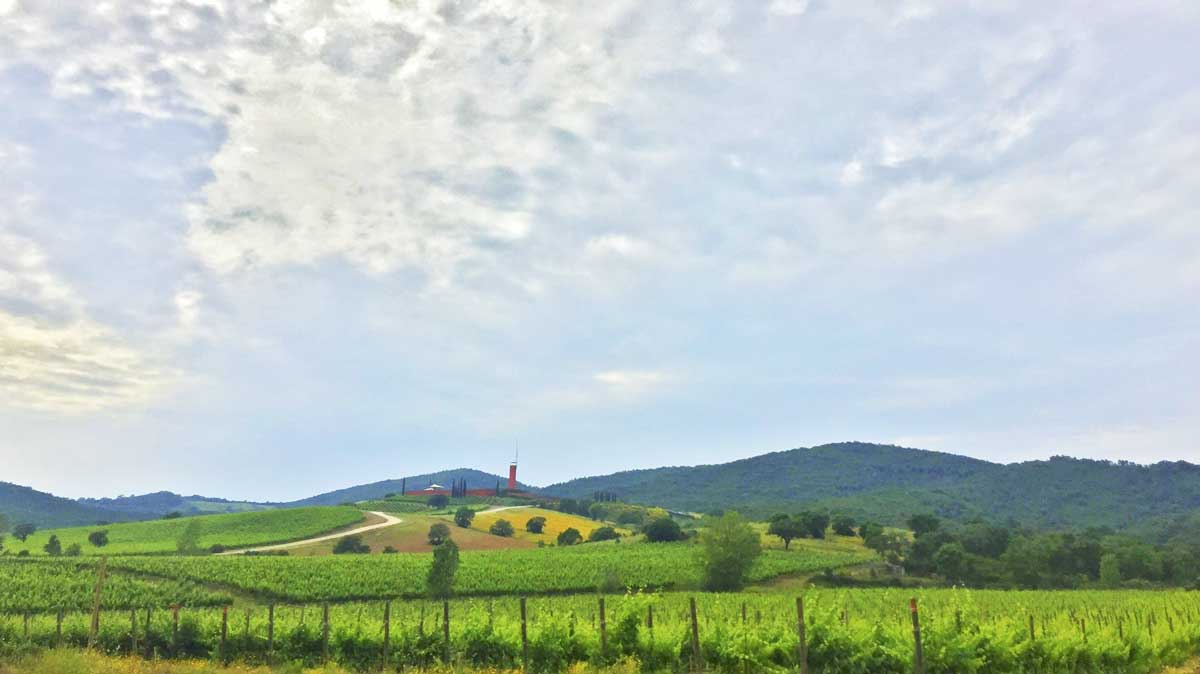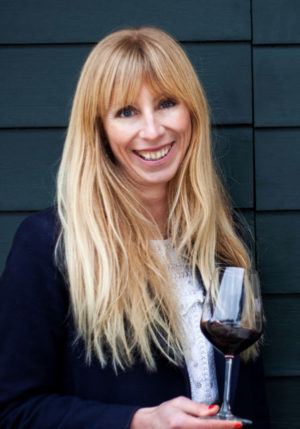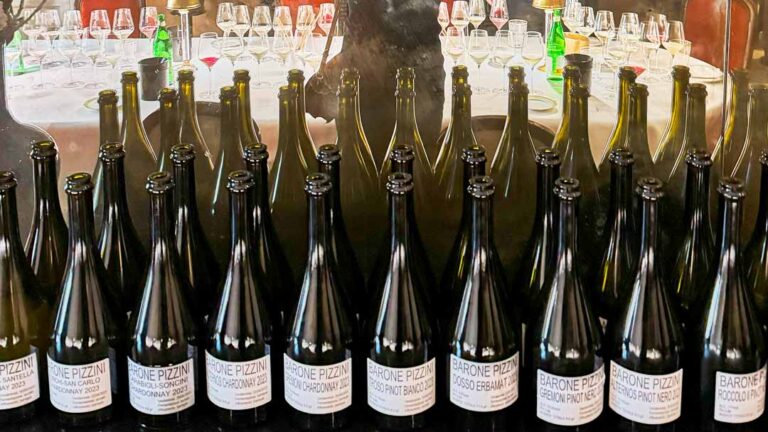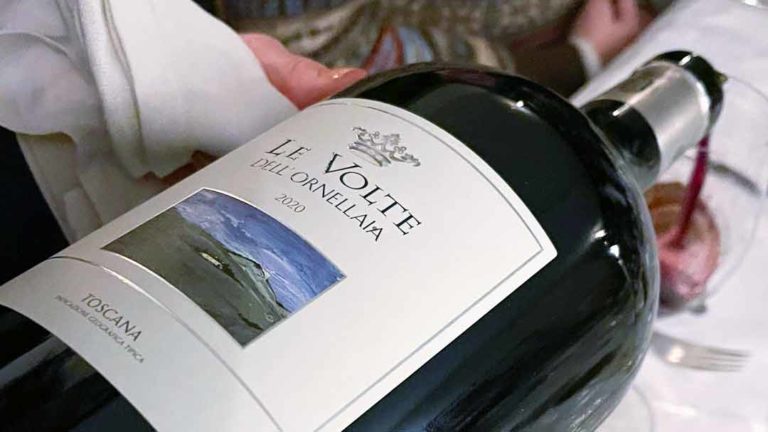Antinori’s Le Mortelle and Rocca di Frassinello
Maremma is the new kid on the block in Tuscany. The region received its appellation as late as 2014. But it is a region with a history with ties back to the beginning of the “super-tuscans” in nearby Bolgheri. BKWine Magazine’s Åsa Johansson met two of the pioneers in the area.
This is the second article of two on Maremma. Read the first here: Maremma – the super-tuscan’s wild neighbour.
Le Mortelle
When Antinori bought the land here in 1999, there was only fruit grown here, including six hectares of blueberries, says Giorgia Dimitriou, winemaker at Le Mortelle, Marchesi Antinori’s vineyard in Maremma.
Giorgia, who is of Greek origin, has an international career behind her, in Bordeaux, New Zealand and Australia, before arriving in Maremma.
In total, the estate has 270 hectares of which 170 hectares are vineyards. Two hectares of blueberries have been kept.
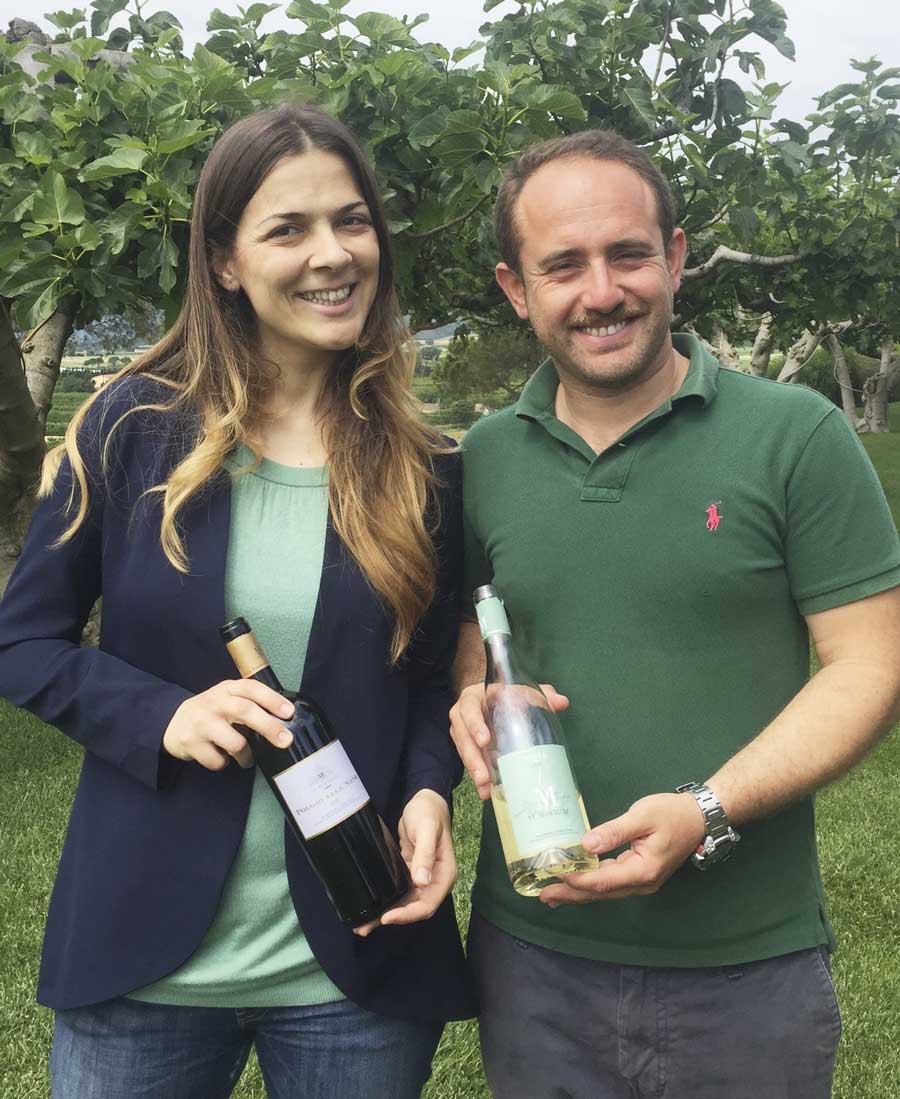
-We initially planted sangiovese, cabernet sauvignon, carmenere and cabernet franc. But also the whites vermentino, viognier and ansonica. After a couple of years, we understood that sangiovese did not come to its full potential here.
-We noticed that it was too hot for sangiovese, even though we removed the grass between the rows to avoid water stress and we have used irrigation since the start. We have also chosen rootstocks that are resistant to drought-like SO4 and 3309, says Giorgia.
Already after four years, they decided to replace sangiovese by grafting syrah, vermentino and viognier on the existing vines, and they are pleased with the result.
“We are only one kilometre from the sea and the soil is sand, clay and rock,” says Giorgia.
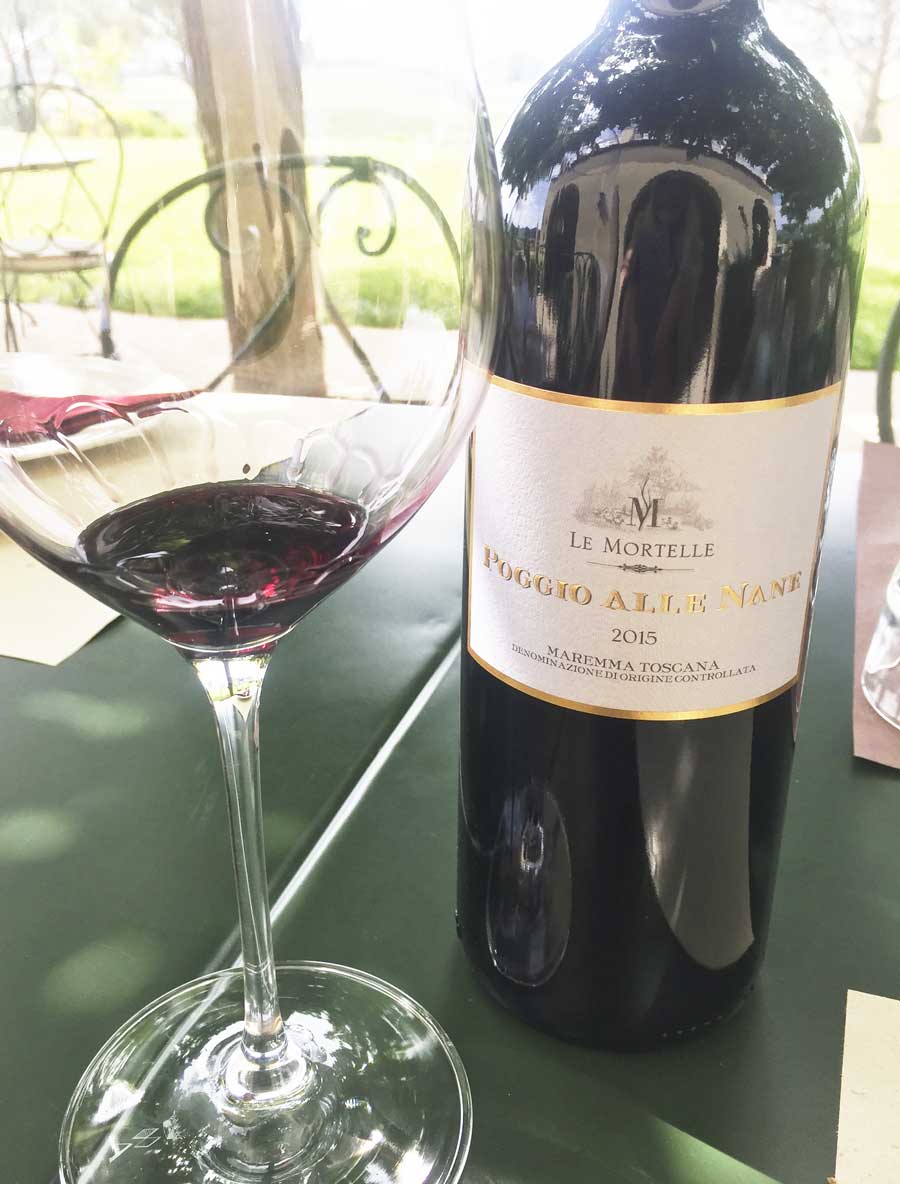
New winery in 2009
In 2009 an impressive winery was built at Le Mortelle. IDEA, an architect firm, was in charge of the design. The same company has designed Antinori’s magnificent facility in Chianti Classico together with the Archea agency.
The structure of the building in Maremma is built on three floors in a temple-like round shape. Grapes and wine can be moved without using pumps all the way down to the cellar with the oak barrels.
“It saves us energy,” says Giorgia.
“For us it is important to maintain elegance and to avoid that the wines become big and heavy. It is incredibly important to be careful in every step of production. For example, we harvest the white grapes early in the morning so that they come into the cellar without being too hot.”
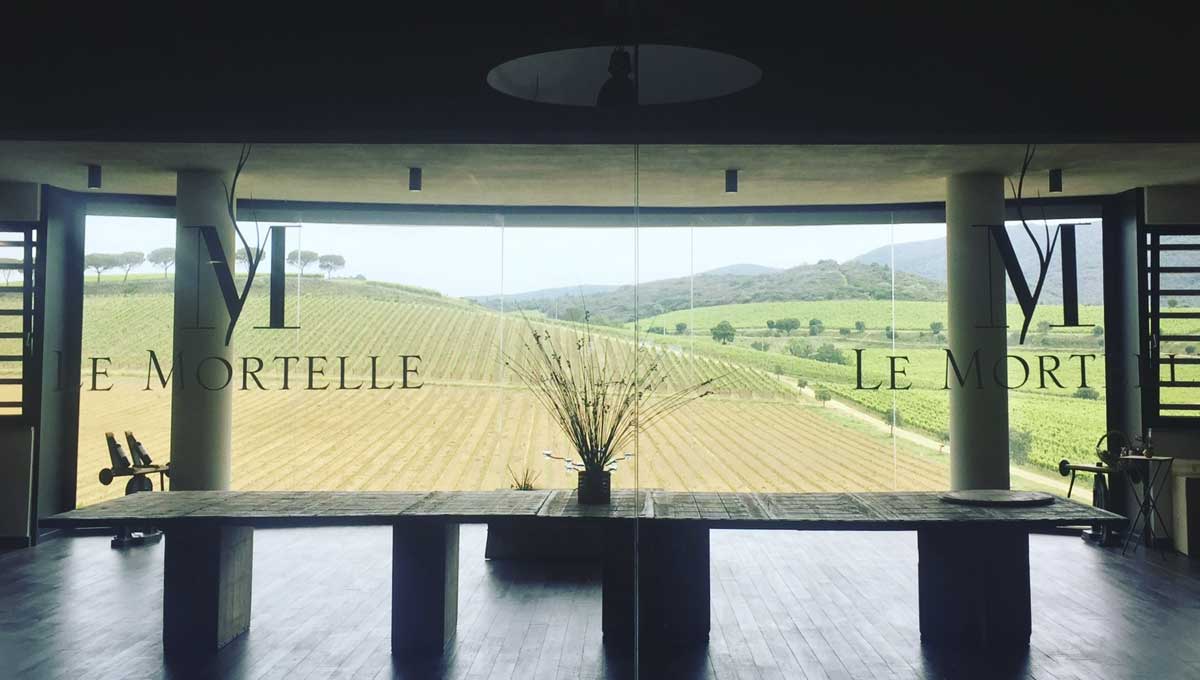
Giorgia also shows me the conical custom-made vats where they make the top wine Poggo alle Nane.
-We do a very soft punching down of the ‘cap’ in the semi-automatic vats. In this way we avoid releasing hard tannins, says Giorgia.
As always in Antinori’s world, it is the overall elegance that makes the most lasting impression. It concerns the interior design, the wines and even those working at the winery.
Tasting notes
Vivia Bianco, 2017, Le Mortelle, Maremma IGP
50% vermentino, 40% viognier, 10% ansonica
Fresh nose, fruity and floral, hints of sea breeze, some volume, fresh pears and apples and a touch of saltiness in the background. Nice and pleasant aperitif wine.
11 euros approx.
Botrosecco, 2015, Le Mortelle, Maremma DOP
60% cabernet sauvignon, 40% cabernet franc
Aged one year in used French oak barrels.
A juicy wine that smells of blueberries, chocolate with a light vanilla tone in the background, good acidity that gives balance. Elegant and well-made.
14 euros approx.
Poggio alle Nane, 2015, Le Mortelle, Maremma DOP
80% cabernet franc, 10% cabernet sauvignon, 10% carmenere
Half of the wine has been aged in new French oak barrels for 18 months. The rest in used barrels.
Wonderfully delicious wine. Delicate and elegant notes of sweet spices, plums, dried orange peel and rose petals. All small-scale without wanting to stand out. Very impressed with how elegant and delicate yet long and structured this wine is. Silky tannins and acidity in harmonious balance. Fantastic wine.
50 euros approx.
More about the vineyard: www.lemortelle.it
Rocca di Frassinello
Rocca di Frassinello is a state-of-the-art facility designed by renowned architect Renzo Piano. It is located near the village of Gavorrano about thirty minutes’ drive inland from the city of Grosseto. Although the building is ultramodern, local tradition is never forgotten. The main building is brick red just like the traditional houses of Maremma. On top of the roof, a tall tower shoots up. Renzo Piano built it as a reminder of the many medieval towers in the area.
What impresses me the most is the wine cellar where the wines are aged. It is built as an amphitheatre where the oak barrels lies on the steps waiting for the contents to be ready and bottled.
-Rocca di Frassinello is a collaboration between Paolo Panerai, who owns Castellare di Castellina in Chianti Classico and Baron Rothschild. Together they bought 500 hectares in Maremma in the late nineties, says Pericle Paciello, market manager of the winery.
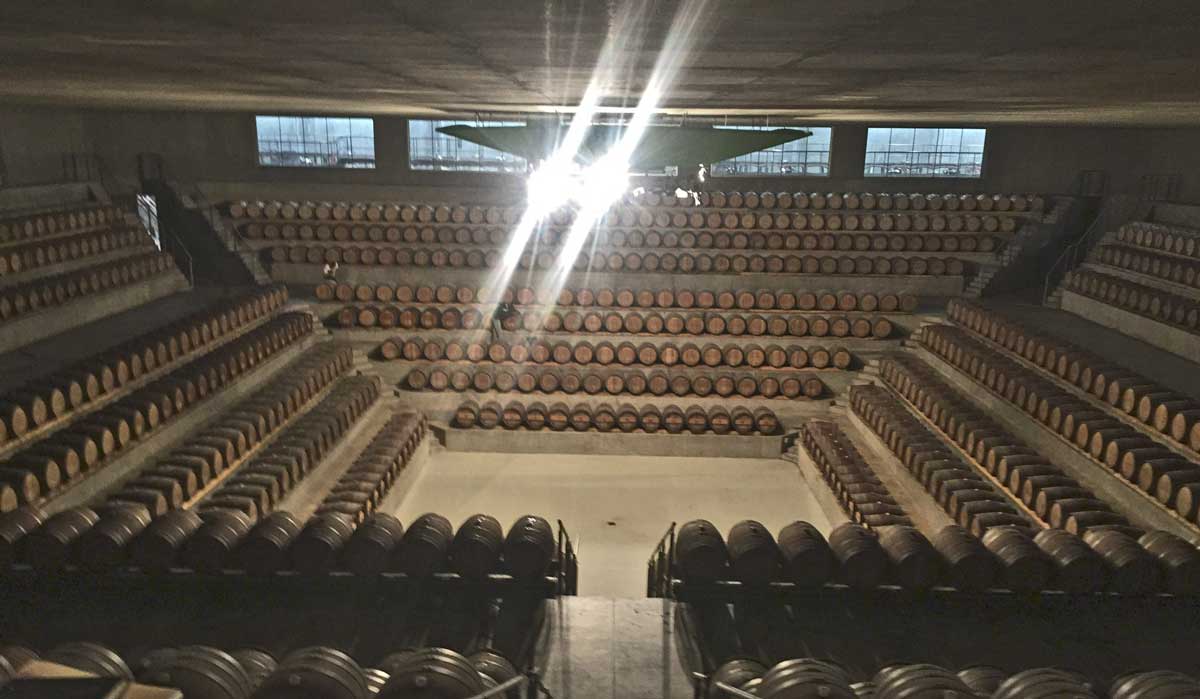
Today, Rocca di Frassinello has 83 hectares of vineyards. Half the production is sangiovese. Their winemaker is Alessandro Cellai.
“We also invest a lot in wine tourism, we believe it is important to strengthen our brand,” Pericle tells me and takes me on a beautiful walk among vineyards and past a small lake before reaching an Etruscan burial ground with ten tombs.
Maremma is home to many Etruscan remains. The Etruscans, the people who lived in central Italy before the Romans took over, were excellent craftsmen and wine producers.
-The Etruscans used to mix their wines with cheese, dried petals, honey and water, says Pericle who has prepared an Etruscan tasting in the little museum they have created for the remains that they found during the excavations. It tastes very peculiar but is interesting to taste.
At Rocca di Frassinello there is something for everyone, culture, beautiful landscape and last but not least well-made wines.
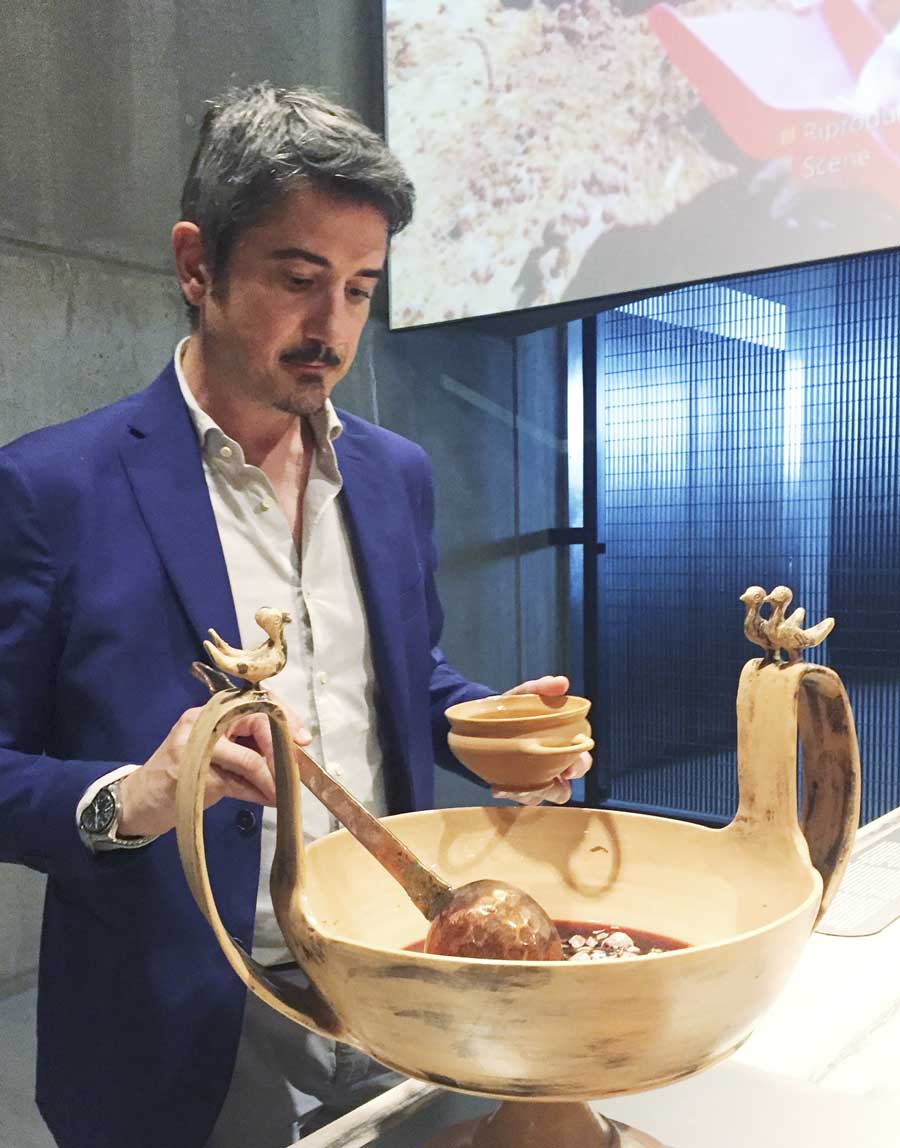
Tasting notes
Ornello, 2015, Rocca di Frassinello, Maremma DOP
40% sangiovese, 20% syrah, 20% cabernet sauvignon, 20% merlot
Red fruit, dried orange peel, slightly oxidized ton, rustic with a lot of tannins.
About 13 euros
Le Sughere di Frassinello, 2015, Maremma DOP
50% sangiovese, 25% merlot, 25% cabernet sauvignon
Ripe fruit, sweet spices, cinnamon, vanilla, ripe tannins, a warm wine with a slightly bitter finish.
About 16 euros
Rocca di Frassinello, 2015, Maremma DOP
60% sangiovese, 20% merlot, 20% cabernet sauvignon
Lots of cherry on the nose, long and more elegant tannins mixed on the palate with notes of red fruits, slight sweetness in the background that gives it a more rounded style. Very nice.
About 45 euros
Rocca di Frassinello 2006, Maremma DOP
60% sangiovese, 20% merlot, 20% cabernet sauvignon
Brick-red tinge that shows the age of the wine, developed aromas with balsamic vinegar, dried plums, white pepper and liquorice. Tannins and acidity that still have a lot of vitality and a long intense finish. A wine that has aged in style.
Price on request
Baffonero, 2015, Maremma IGP
100% merlot
Dark berries, a rich and full-bodied merlot with notes of ripe cherry, blueberries with tangible tannins, vanilla, coffee. A wine for those who like “big” merlot wines.
About 150 euros
More on the vineyard: www.roccadifrassinello.it
This is the second article of two on Maremma. Read the first here: Maremma – the super-tuscan’s wild neighbour.
Åsa Johansson is BKWine’s person in Italy. She lives in Florence since the early ’00s. Asa writes regularly on wine and food in Swedish and Italian publications as well as online.
[box type=”info” size=”large” style=”rounded” border=”full”]
Nothing can compare with visiting the wine districts and tasting the wines where they are made. Come to Tuscany on a fantastic wine tour with BKWine.
Travel to the world’s wine region with the wine experts and wine tour specialist.
Wine tours that take you to the best and the most extraordinary. BKWine wine tours.
[/box]
